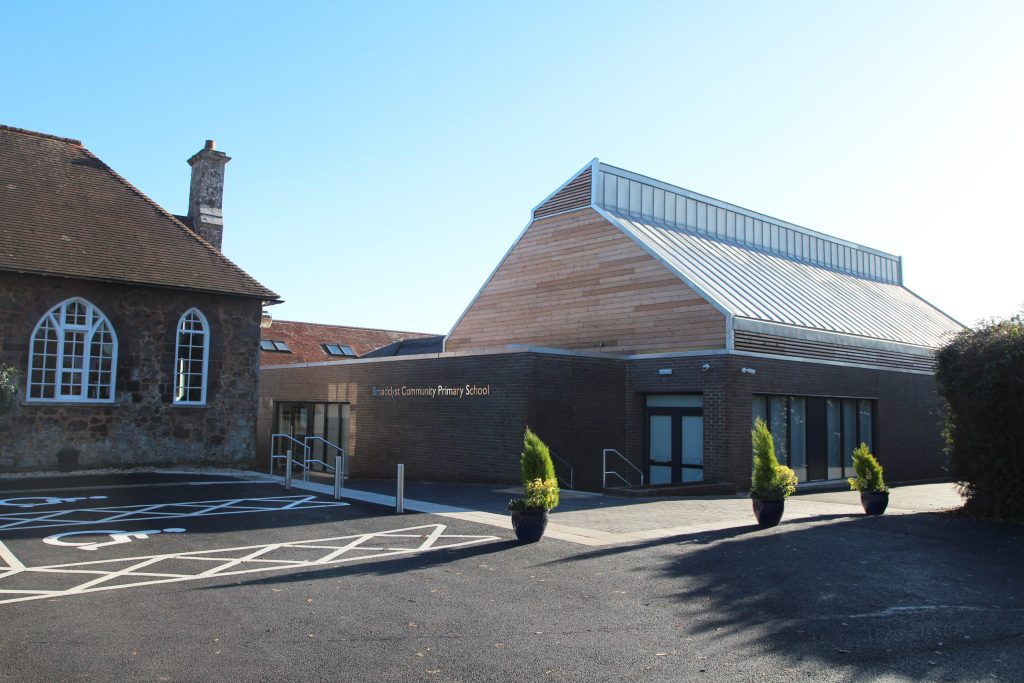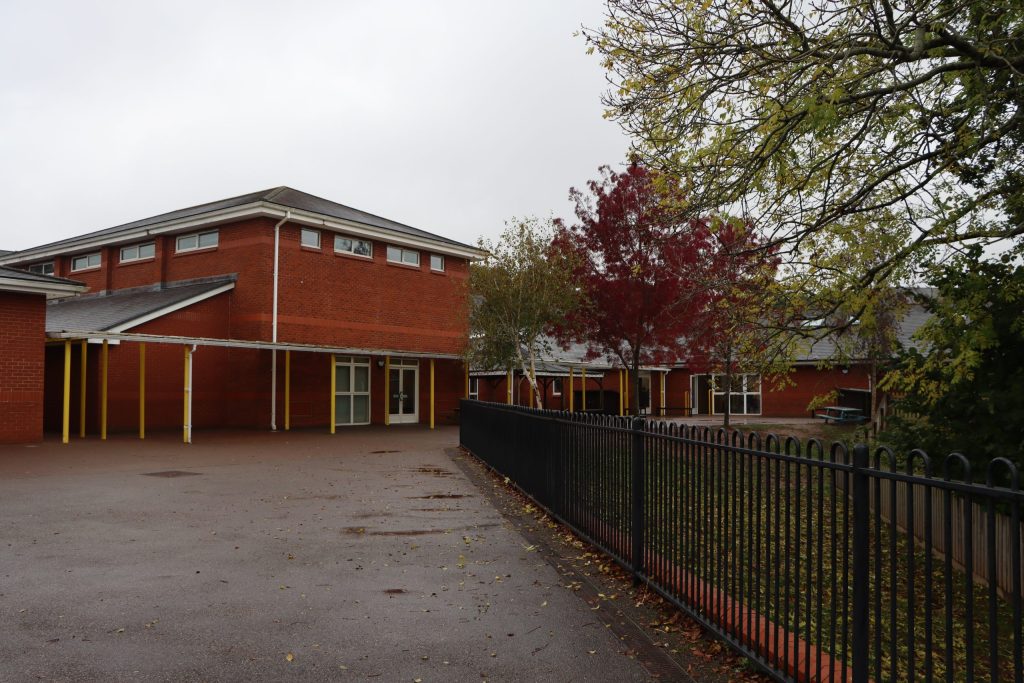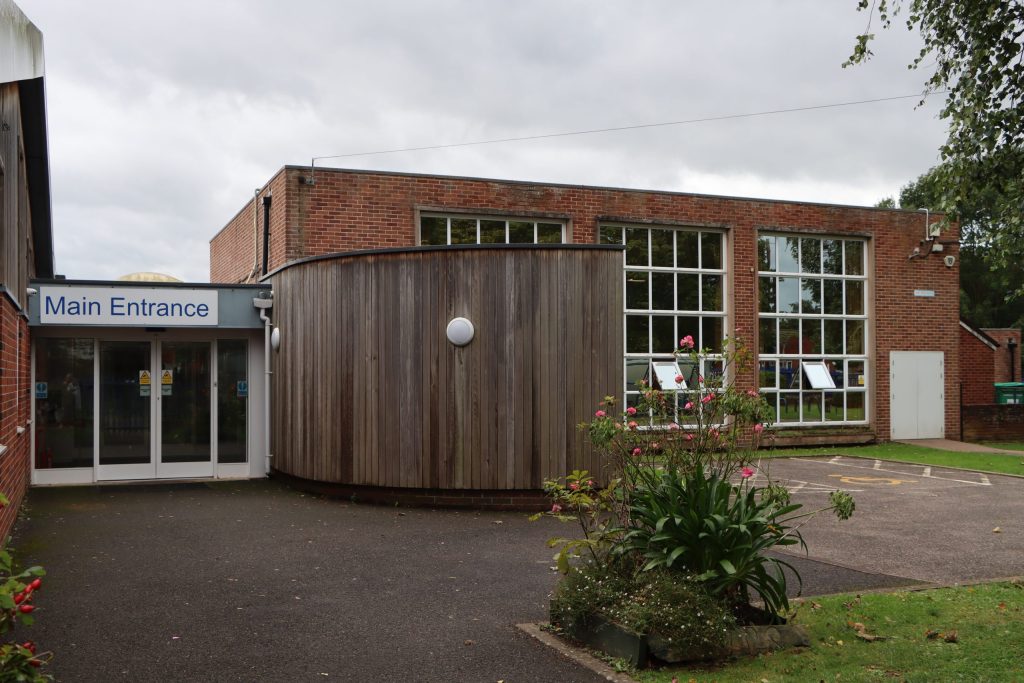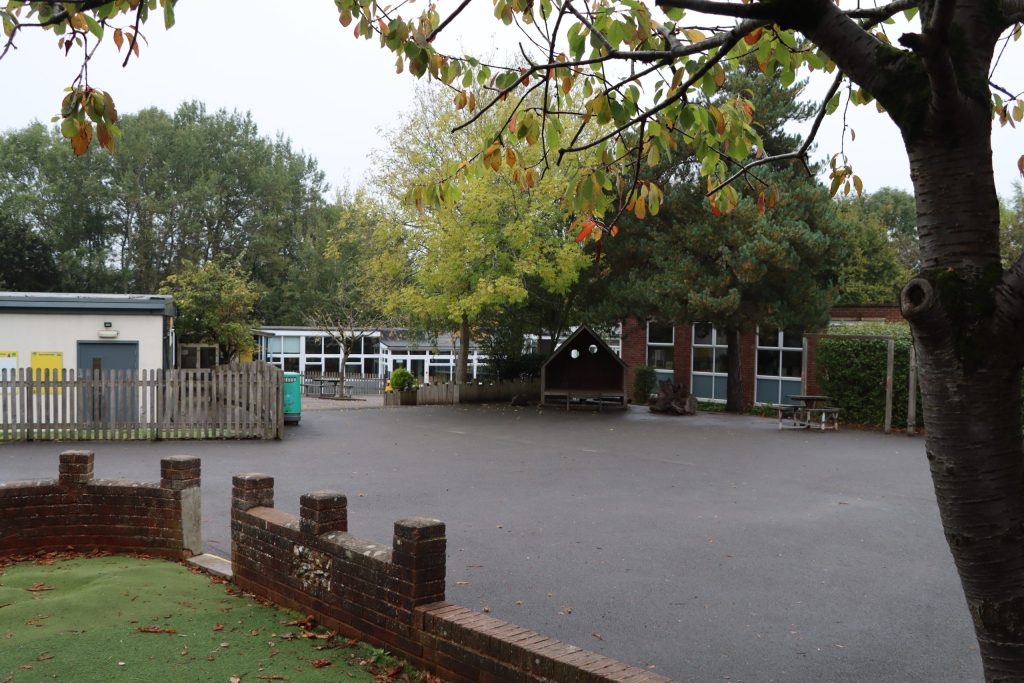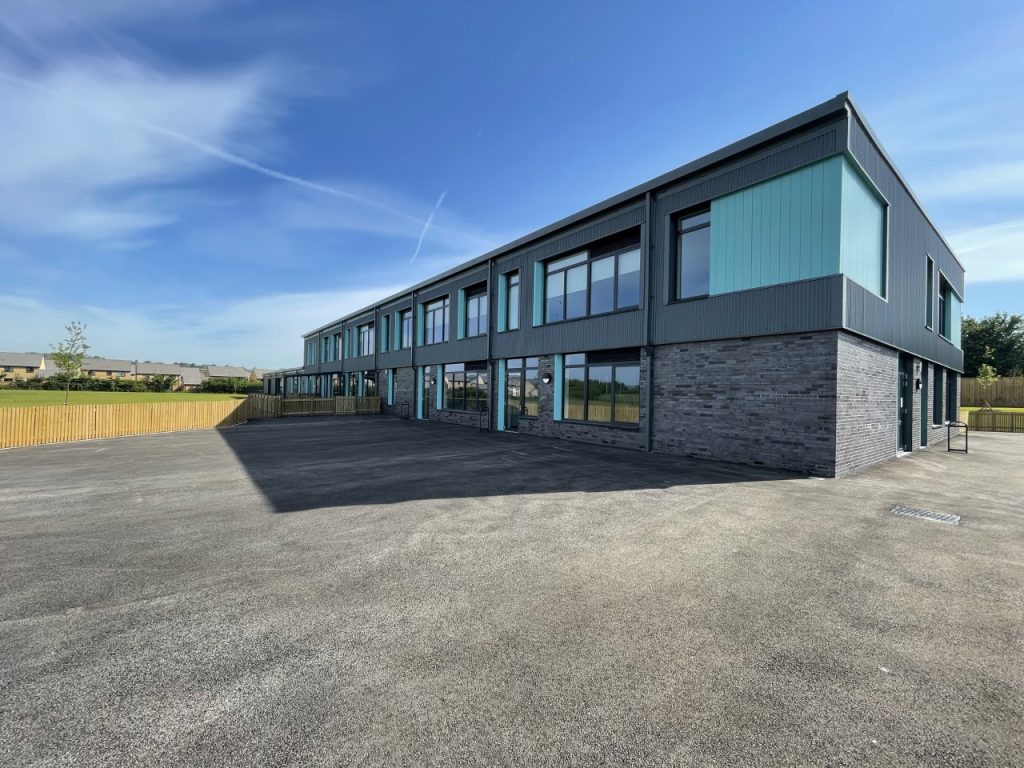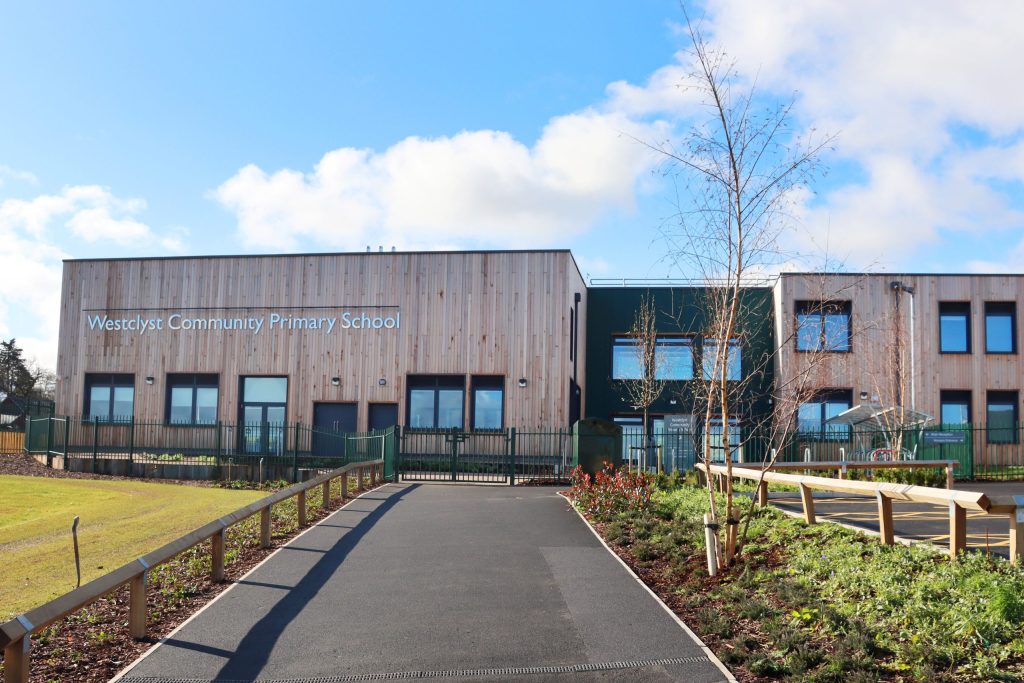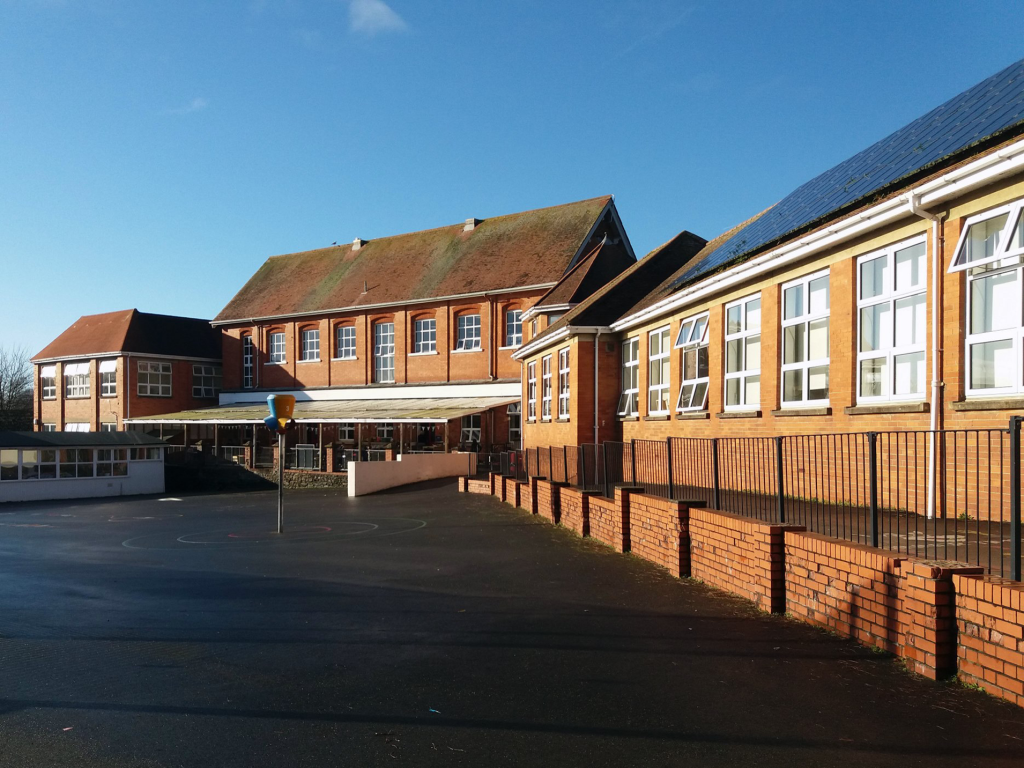Science
Science across our Trust is a hands-on, investigative subject that encourages curiosity and prepares children to understand and engage with the world around them. Rooted in the National Curriculum, our approach emphasises working scientifically, with children learning to ask questions, carry out fair tests, and interpret results. Science is taught as part of a broader STEM education, with strong links to Design and Technology, allowing children to apply their learning through creative design, testing, and evaluation.
Real-world application is central to our science curriculum. Children take part in exciting, practical projects such as the Eggy Challenge Week, a Trust-wide event where every year group engages in STEM-based investigations. From building protective egg containers to exploring sound through string cup telephones, these experiences bring science to life and foster critical thinking, collaboration, and resilience—skills essential for the future.
Nursery
In Nursery, pupils begin to explore science through hands on experiences that spark curiosity and wonder. They use their senses to investigate the world around them: touching, smelling, listening, and observing as they play. Children explore natural materials like water, sand, leaves, and ice, noticing how things feel, move, and change. They begin to ask simple questions such as “What will happen if…?” and are encouraged to talk about what they see. Through seasonal walks and outdoor play, they observe changes in weather and nature, and they begin to understand basic concepts like growth, decay, and the life cycles of plants and animals. These early experiences help children develop observation skills and a love for discovering how the world works.
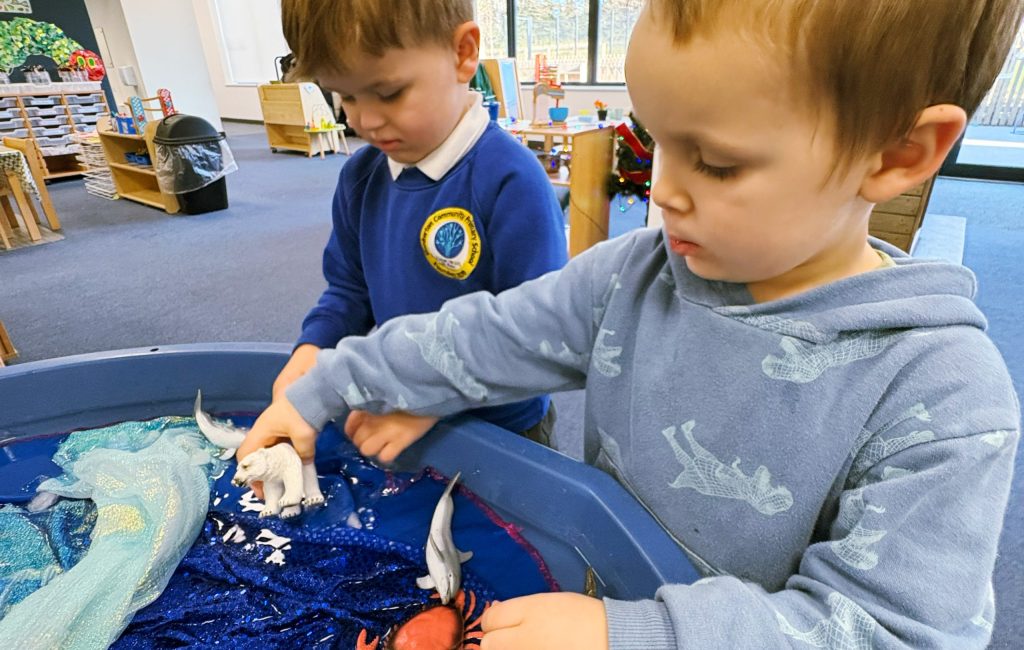
Understanding the World
Understanding the world involves guiding children to make sense of their physical world and their community. The frequency and range of children’s personal experiences increases their knowledge and sense of the world around them – from visiting parks, libraries and museums to meeting important members of society such as police officers, nurses and firefighters. In addition, listening to a broad selection of stories, non-fiction, rhymes and poems will foster their understanding of our culturally, socially, technologically and ecologically diverse world. As well as building important knowledge, this extends their familiarity with words that support understanding across domains. Enriching and widening children’s vocabulary will support later reading comprehension.
Reception
In Reception, pupils build on their early scientific experiences by exploring a wider range of topics through observation, discussion, and simple investigations. They learn about the seasons, life cycles, and the properties of materials through activities such as planting seeds, exploring habitats, and experimenting with floating and sinking. Pupils are encouraged to make predictions, talk about what they notice, and explain their ideas using simple scientific language. They explore forces like push and pull, observe changes in states of matter (such as melting ice), and begin to understand how to care for living things and the environment. These experiences help children develop early scientific thinking and vocabulary, laying the foundation for future learning in science.
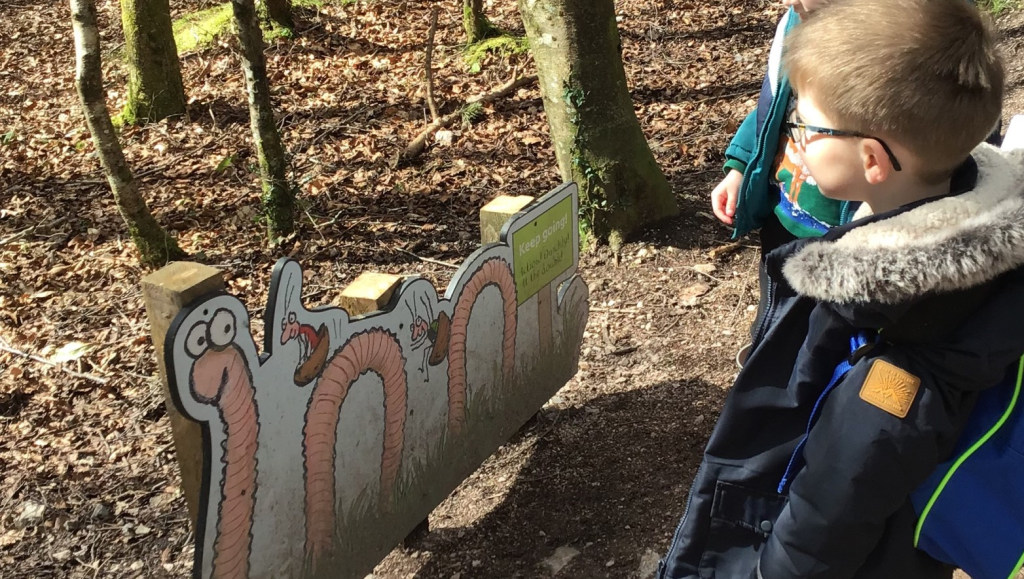
Understanding the World
Understanding the world involves guiding children to make sense of their physical world and their community. The frequency and range of children’s personal experiences increases their knowledge and sense of the world around them – from visiting parks, libraries and museums to meeting important members of society such as police officers, nurses and firefighters. In addition, listening to a broad selection of stories, non-fiction, rhymes and poems will foster their understanding of our culturally, socially, technologically and ecologically diverse world. As well as building important knowledge, this extends their familiarity with words that support understanding across domains. Enriching and widening children’s vocabulary will support later reading comprehension.
Year 1
In Year 1, children explore the world around them through hands-on investigations and exciting scientific questions. They learn about animals—including humans—by studying their own bodies, senses, and pets, and comparing them to animals in Antarctica. Through projects like “Frozen Planet”, they investigate how materials behave in cold conditions and conduct experiments such as rescuing frozen animals. They also explore everyday materials by designing and testing wheels and building shields, and they grow their own carrots as part of the “Plants & Growing” project. Seasonal changes, weather patterns, and ocean habitats are also explored, helping children develop curiosity and a deeper understanding of the natural world.
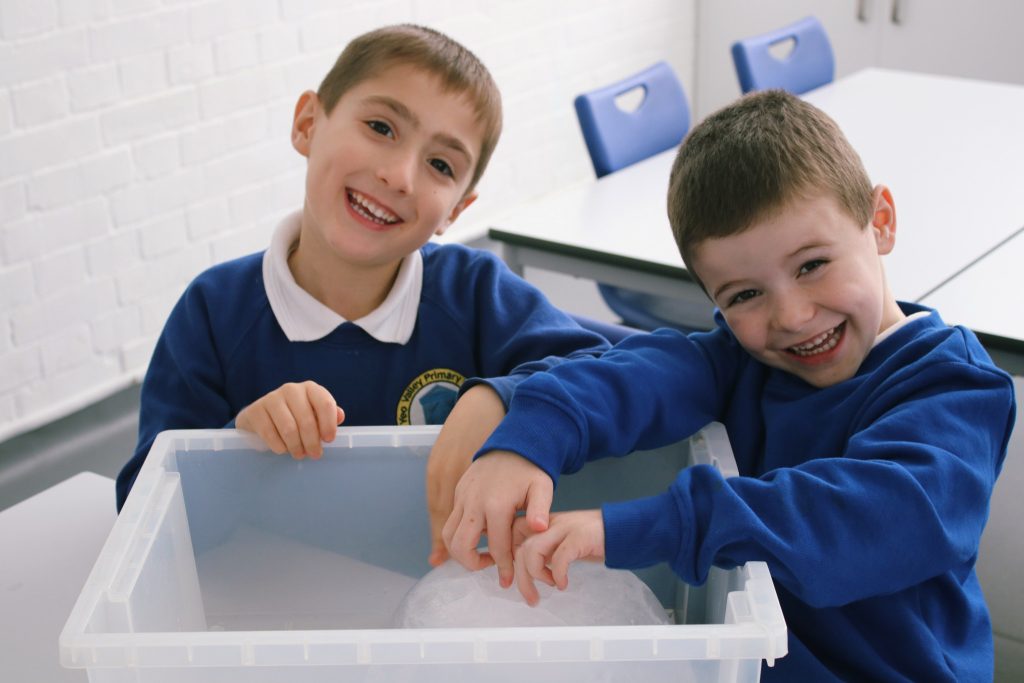
- Identify and name a variety of common wild and garden plants.
- Identify deciduous and evergreen trees.
- Identify and name a variety of common animals (fish, amphibians, reptiles, birds, mammals).
- Distinguish between an object and the material from which it is made.
- Observe changes across the four seasons.
Year 2
In Year 2, children build on their scientific knowledge through practical investigations and real-world applications. They begin by exploring materials while designing and testing escape boats in the “Disasters and Triumphs” project, and later investigate the properties of materials used in Anderson shelters during “The Second World War”. As the year progresses, they grow beans, explore hydroponics, and learn about healthy eating through taste tests and nutrition studies. In the summer, they focus on habitats and adaptation, researching nocturnal animals and life cycles, and even build bug hotels and explore food chains in the “Animals and their Habitats” and “Building Communities” projects. These experiences help children think scientifically and understand how science connects to their everyday lives.
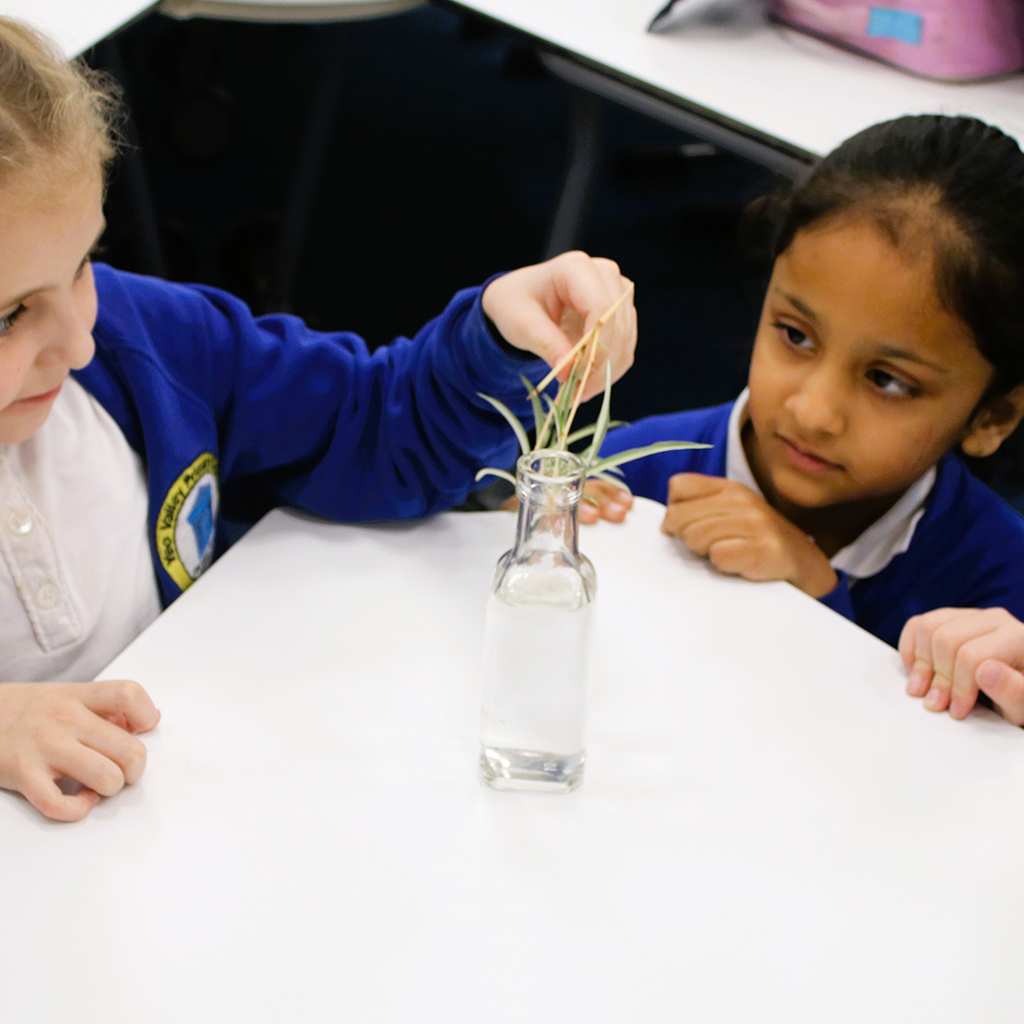
- Explore and compare things that are living, dead, and never alive.
- Observe how seeds and bulbs grow into mature plants.
- Notice that animals, including humans, have offspring which grow into adults.
- Identify and compare the suitability of a variety of everyday materials.
Year 3
In Year 3, children begin to explore the world around them through hands-on, purposeful investigations. Early in the year, they take part in a growing project, learning how to sustain plant life and understand what plants need to thrive. They also explore light and shadow later in the year, taking on the role of shadow puppet theatre directors to retell traditional tales, bringing science and storytelling together. In the Summer Term, they visit local beaches to fossil hunt and understand how rock’s are formed – another practical way of bringing science to life. Additional core topics include forces and magnets, and animals including humans, with a strong focus on developing skills in observation, prediction, and drawing conclusions.
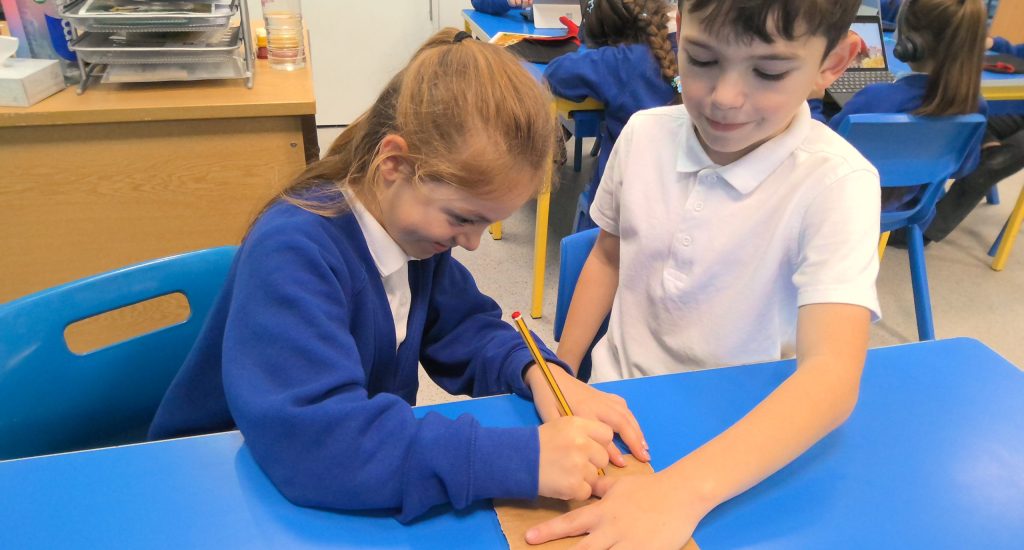
- Identify and describe the functions of roots, stem/trunk, leaves, and flowers.
- Understand the need for the right nutrition.
- Identify skeletons and muscles for support, protection, and movement.
- Compare and group rocks based on appearance and properties.
- Describe fossil formation.
- Recognize that soils are made from rocks and organic matter.
- Recognize that light is needed to see.
- Understand reflection and how shadows are formed.
Year 4
In Year 4, children deepen their understanding of the natural world through exciting, often messy, investigations. They explore climate zones in geography and apply this knowledge to science by investigating rainfall and the water cycle across global biomes. Their study of teeth and digestion includes memorable experiments using eggs in strange liquids and tights to simulate the digestive system, making abstract concepts tangible and fun. In the Spring term, Year 4 investigate electricity and it’s impact, applying this to historical learning and a project that tests out the success of the Morse Code machine. Other key topics in Science include electricity, sound, and states of matter, with children learning to record and present their findings using graphs and charts.
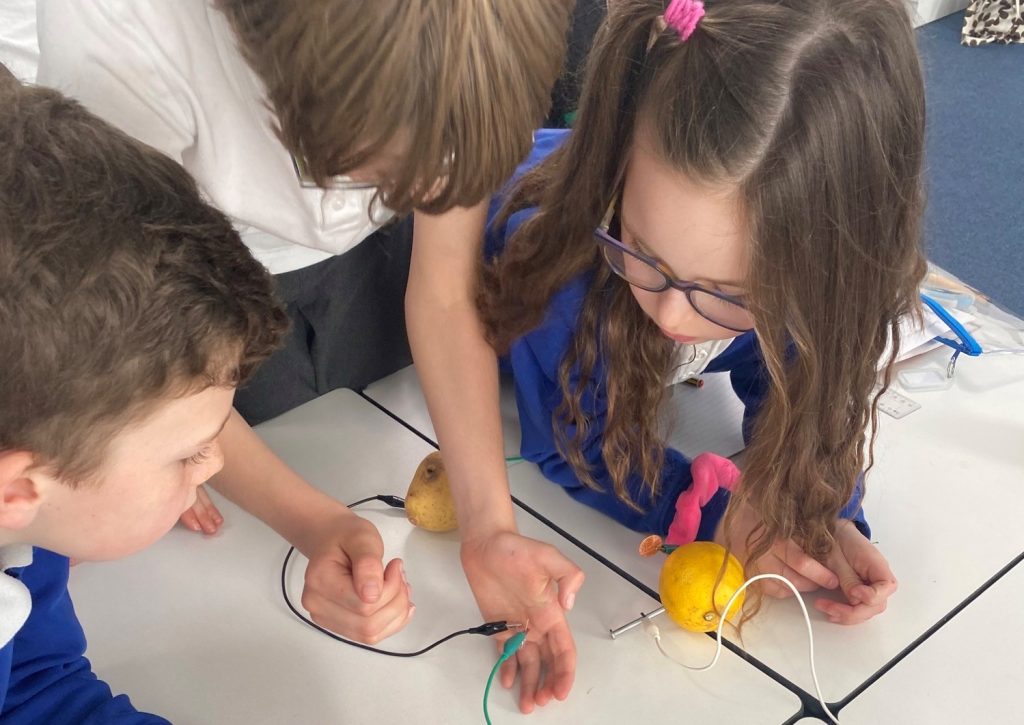
- Group living things in various ways.
- Explore how environmental changes affect habitats.
- Describe the digestive system.
- Identify types of teeth and their functions.
- Construct and interpret food chains.
- Compare and group materials as solids, liquids, or gases.
- Observe changes of state and understand the water cycle.
- Identify how sounds are made and how they travel.
- Explore pitch and volume in relation to vibrations.
Year 5
In Year 5, science becomes more exploratory and ambitious. A major highlight is the Astronomy Evening, where children showcase their learning about Earth and space. They use the Trust Telescope, welcome the Space Dome into school, and share their knowledge with families during evening sessions. On residential, they engage in pond dipping to explore life cycles in real habitats. Other key topics include forces (which is tested during Eggy Challenge week), properties and changes of materials, and animals including humans, with children encouraged to ask deeper questions and design their own investigations.
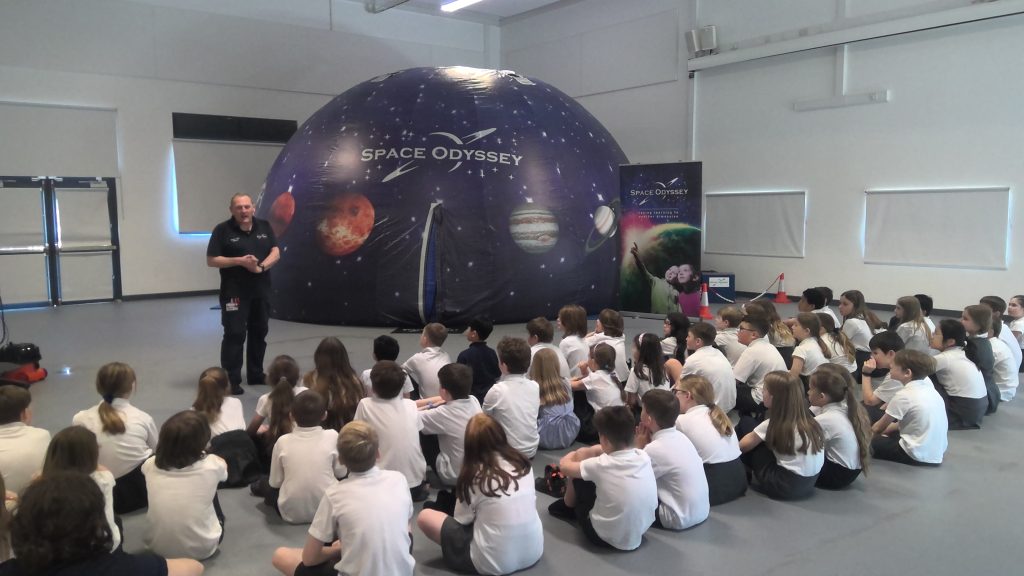
- Describe life cycles of mammals, amphibians, insects, and birds.
- Understand reproduction in some plants and animals.
- Describe the changes as humans develop to old age.
- Compare and group materials based on properties (hardness, solubility, conductivity).
- Understand dissolving and reversible/irreversible changes.
Year 6
Children consolidate their scientific knowledge and apply it to real-world contexts in preparation for secondary school. In the Autumn Term, they explore evolution and inheritance, discussing how animals have adapted over time and imagining possible futures for species based on environmental change. They also revisit and extend their understanding of light, electricity, and classification, using increasingly sophisticated methods to plan, conduct, and evaluate investigations. Science is linked to enterprise through the Global Enterprise Challenge, where children apply their understanding of data and variables to real-life business scenarios, presenting their findings through graphs and charts. Year 6 is a year of connection, consolidation, and confidence, where children use science to explain, question, and influence the world around them.
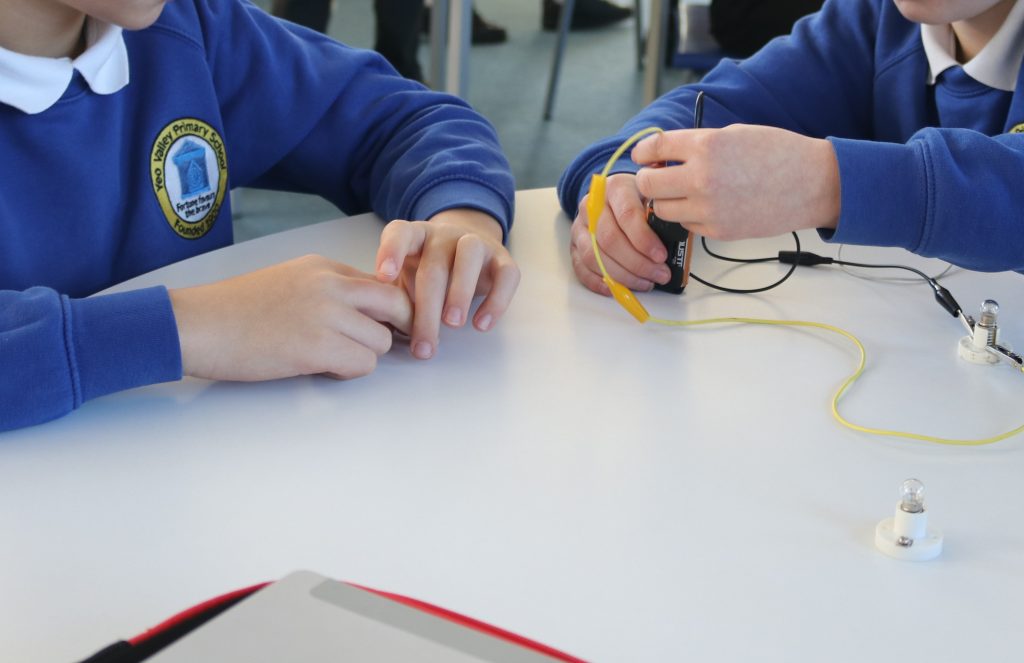
- Classify living things based on observable characteristics.
- Understand microorganisms, plants, and animals.
- Identify parts of the human circulatory system.
- Understand the impact of diet, exercise, drugs, and lifestyle.
- Recognize that living things have changed over time.
- Understand fossil evidence and adaptation.
- Understand how light travels and how we see things.
- Explore reflection and refraction.
- Associate brightness or volume with the number and voltage of cells.
- Compare and explain variations in how components function.
Contact: admin@tcat.education
Phone: 01392 304040
© The Cornerstone Academy Trust 2025



